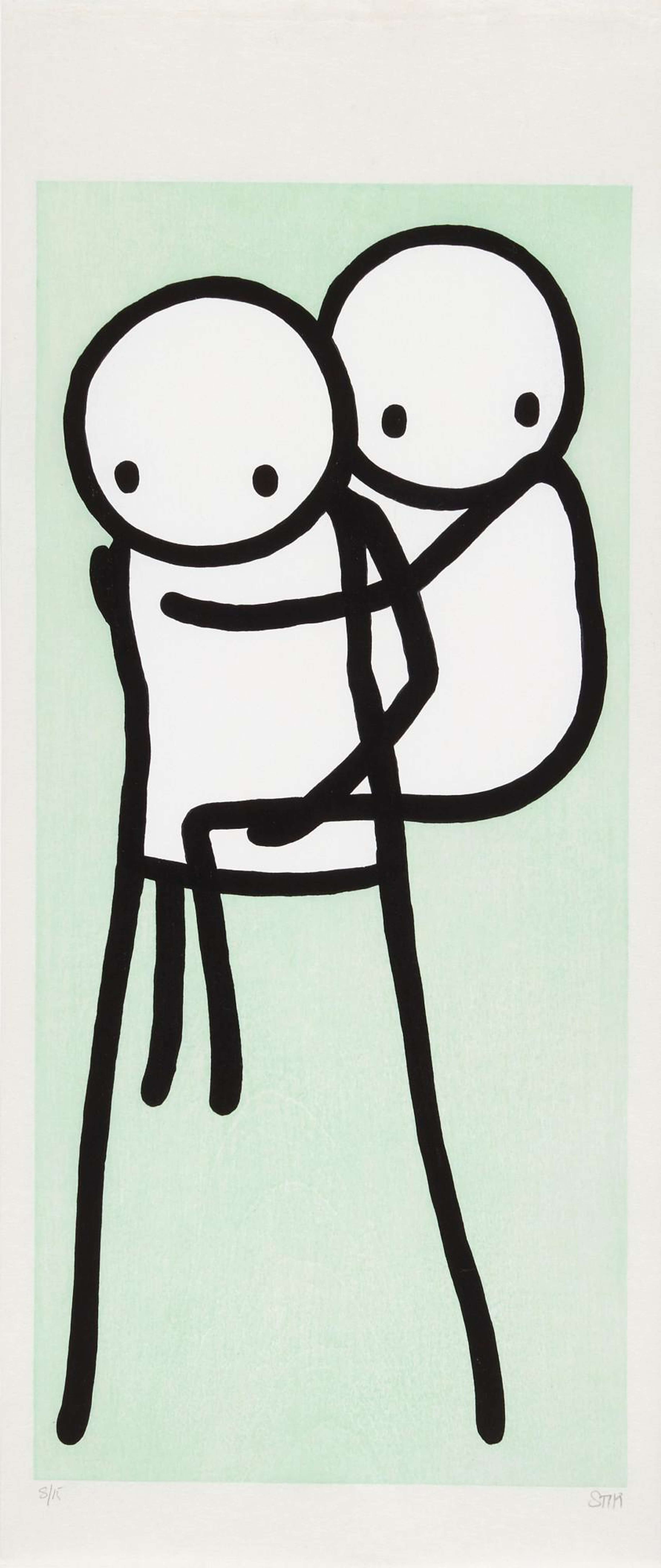
Onbu (green)
Onbu (green)
Signed Print
Stik
£20,000-£30,000
$40,000-$60,000 Value Indicator
$35,000-$60,000 Value Indicator
¥190,000-¥280,000 Value Indicator
€23,000-€35,000 Value Indicator
$210,000-$310,000 Value Indicator
¥4,150,000-¥6,230,000 Value Indicator
$27,000-$40,000 Value Indicator
There aren't enough data points on this work for a comprehensive result. Please speak to a specialist by making an enquiry.
40 x 18cm, Edition of 15, Woodcut
Auction Results

Track auction value trend
Meaning & Analysis
Onbu (green) is a 2013 woodcut print by street artist, Stik. Released in an edition of 15, this woodcut is printed in green, black and white and is based on a section from a 19th century Japanese print detailing a piggyback.
As part of his method, Stik used techniques associated with the old Japanese woodcut style of 'ukiyo-e' to make the pieces, which contrast with Stik's generally sparse colour scheme yet are complementary to it. Although Stik's inspiration for the series is readily apparent, the piece is also completely at home in the artist's portfolio, infusing existing themes of dependency and physical support.
With its combination of the specific techniques and subject matter of Japanese ukiyo-e with Stik's bare-bones compositional style, the print is an intriguing meeting of approaches.
It is without a doubt the Stik print series that pushes the Japanese influence in his work to the forefront of the viewer's attention. With its combining of the classical ukiyo-e approach with the artist's Kanji-inspired style, the print provides a fascinating glimpse into the genesis of Stik's iconic six-line stickman.
